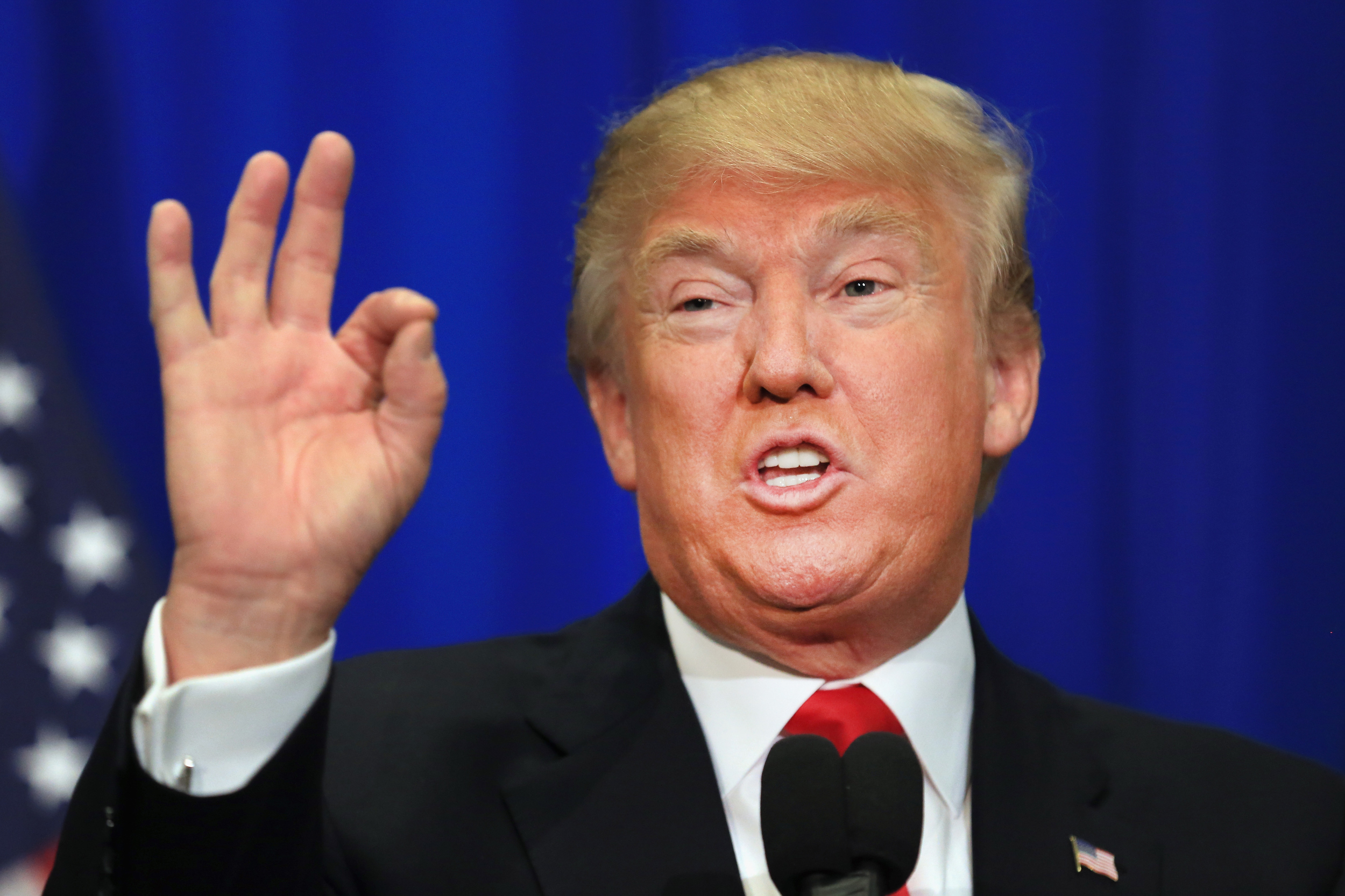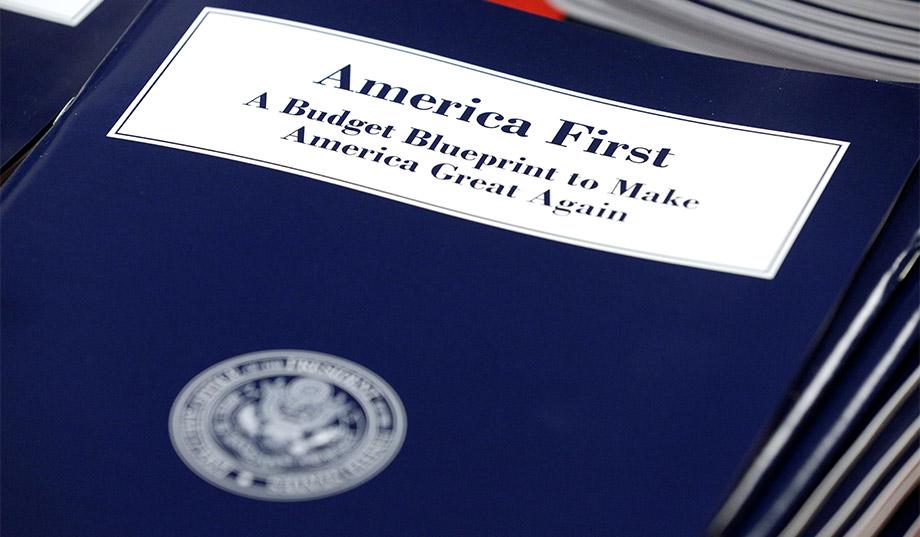This article originally appeared in the Fall 2016 edition of the Georgia Political Review.
By Emily Maloney
Inhis keynote speech at the Republican National Convention, Donald Trump stated that he “will present the facts plainly and honestly. We cannot afford to be so politically correct anymore.” His vendetta against political correctness has become a centerpiece of his campaign, whether argued overtly as in this speech or, more often, implied through his willingness to call Mexicans “rapists,” Muslims “terrorists,” and President Obama the “founder of ISIS.” The defiant tone of these assertions indicates the belief that his right to free speech supersedes the tenets of common decency, honesty, and integrity, which are supposedly being policed under a regime of political correctness. Thanks in part to his campaign and recent controversial events at universities, political correctness has become a national debate. But what does political correctness even mean?
According to Trump, political correctness is the left’s tool of tone policing and their perceived unwillingness to speak the hard “truths” that he is gleefully willing to expose. To author George Saunders (and most left-leaning people), however, political correctness has a different connotation. In a recent New Yorker piece profiling Trump supporters, Saunders noted, “Trump supporters are ‘not politically correct,’… they have a particular aversion to that psychological moment when, having thought something, you decide that it is not a good thought, and might pointlessly hurt someone’s feelings, and therefore decline to say it.” Yet another definition of the phrase comes from arguments over safe spaces on college campuses, in which political correctness is understood to be the weapon of coddled college students waging war on the sphere of academic freedom because they cannot bear to face an opinion different than their own.
How can political correctness possibly mean all of this? Somehow one phrase has come to indicate an oversensitivity that borders upon unreality, an inclination to be considerate to others, and a tool of censorship all at the same time. The definition an individual chooses as the correct one ends up defining them. This selectivity of the multitude of uses of “political correctness” strips the phrase of constructive meaning across different groups of people.
The definition of political correctness has been in flux ever since its inception to U.S. politics in the mid-1900s. In the beginning, the term was used primarily by Marxist/Leninists to deride those who thought simply using inclusive language would be enough to achieve their political ideals. Around the 1990s, it entered the world of mainstream politics, and conservatives began to use it to criticize censorship in the name of tolerance. Today, the phrase is deployed in diverse situations and most do not stop to consider the reasons why it is used, the contextual definition, and how definitions may differ among people engaged in debate.
The issue is complicated by the fact that these definitions do not hold true within the groups themselves. Trump and his supporters champion their right to be non-“PC” and use language that generalizes entire religions, races, and genders. However, when Hillary Clinton said in a recent speech at a fundraiser that “you could put half of Trump’s supporters into what I call the basket of deplorables…the racist, sexist, homophobic, xenophobic, Islamaphobic ,” the Trump campaign blasted Clinton for not “respecting” his supporters by “insulting” them. On the surface, this is obviously hypocritical, as there are far too many instances of Trump blatantly disrespecting people to fit into this article’s word limit. It also reveals a fundamental misunderstanding of the right to freedom of speech. Yes, Donald Trump and his supporters can say whatever they would like without backlash from the government, but they are not exempt from social commentary as a reaction to their viewpoints. Their definition of political correctness has less to do with maintaining an atmosphere of free speech and more to do with upholding a rhetoric of hate that purposefully silences minorities.
Wow, Hillary Clinton was SO INSULTING to my supporters, millions of amazing, hard working people. I think it will cost her at the Polls!
— Donald J. Trump (@realDonaldTrump) September 10, 2016
While Hillary said horrible things about my supporters, and while many of her supporters will never vote for me, I still respect them all!
— Donald J. Trump (@realDonaldTrump) September 10, 2016
Liberals are not exempt from the hypocrisy either. While claiming to uphold political correctness because they view themselves as more open-minded and tolerant, liberals are often quick to disparage the political opinions of rural, poor whites without critical assessment of why they may feel that way. Circling back to Clinton’s speech, she labeled a group of Americans by their worst quality without attempting to comprehend the forces driving them to hold discriminatory views. By not acknowledging the struggles of this group of people — many of whom live in areas where death rates from drug overdose exceed those for death from natural causes, in places where educational attainment is decreasing, and in communities that essentially have no upward mobility — Clinton committed a similar “lumping” and demonization of people for which Democrats criticize Trump. Most liberals are content to selectively apply the ideals of political correctness in a way that aligns with their greater ideology. Once again, the use of political correctness does not hold completely to the groups’ purported stance – to be kind, respectful, and advocate for the rights of minorities. Instead, sometimes it feels like a way to pat oneself on the back for being “smarter” or more moral than those dismissed as “close-minded.”
Even on college campuses, the debate over PC culture is far more complex and contradictory than most news articles suggest. In a letter to incoming freshman, University of Chicago Dean of Students Dr. John Ellison wrote, “Our commitment to academic freedom means that we do not support so-called ‘trigger warnings,’ we do not cancel invited speakers because their topics might prove controversial, and we do not condone the creation of intellectual ‘safe spaces’ where individuals can retreat from ideas and perspectives at odds with their own.”
Ironically, this statement meant to protect academic freedom is simultaneously a speech code that infringes on the rights of students to protest against events they feel to be discriminatory and to form groups of their own volition, as well as of teachers to issue trigger warnings if they would like to. In fact, an informal survey done by NPR found that about half of the surveyed instructors at colleges and universities around the United States had used trigger warnings – and most had done so of their own choice, not because a student requested they do so. The root of the political correctness argument on campuses is the ambiguity of words like “trigger warnings” and “safe spaces;” oftentimes media assumes the worst of these precautions and understands them as censorship instead of infrastructure to promote constructive, safe discussion. The letter sent from Dr. Ellison was facially about instituting a culture of academic freedom, but once the language is parsed and the internal contradictions are exposed, it becomes apparent that the purpose of the letter is actually to send a message about the identity of the university.
That’s really the essence of the entire political correctness debate – promoting an identity. Because the phrase has lost a concrete definition, it can no longer serve as a useful tool for productive dialogue. Instead, the term has been co-opted by each of these competing interests to serve as an indicator of in-group status. With the loss of meaning, the term has become a way to assert power and dismiss those who think differently than oneself without having to critically assess their point of view. Americans are increasingly speaking past each other, and it’s dangerous to our democracy. Without a common language to communicate with, a constructive national consensus will be near impossible to reach.


